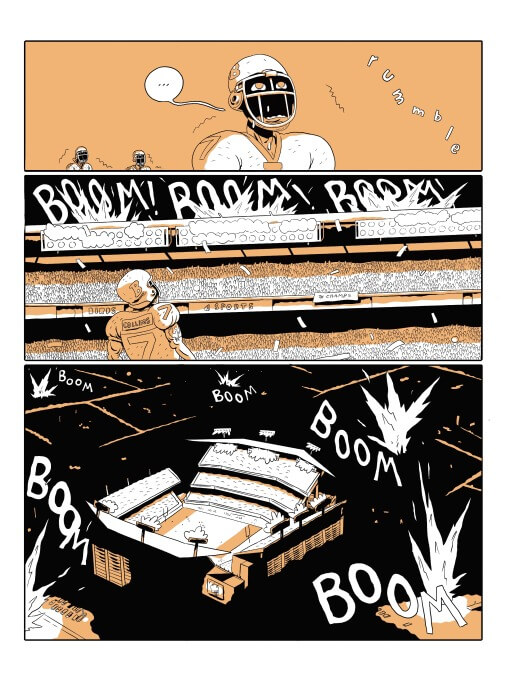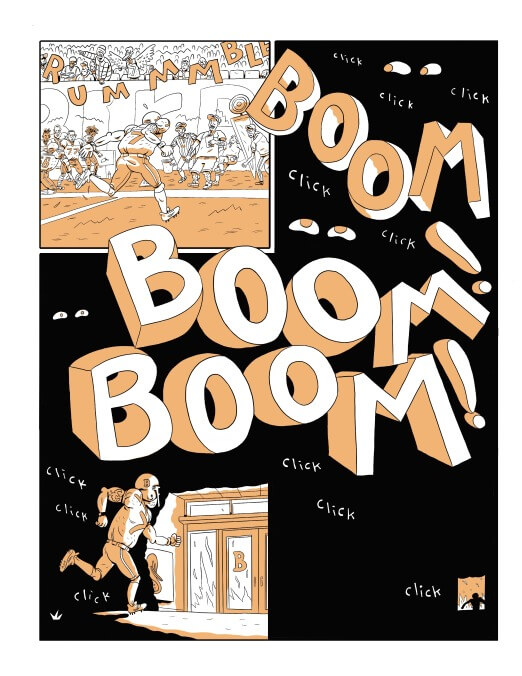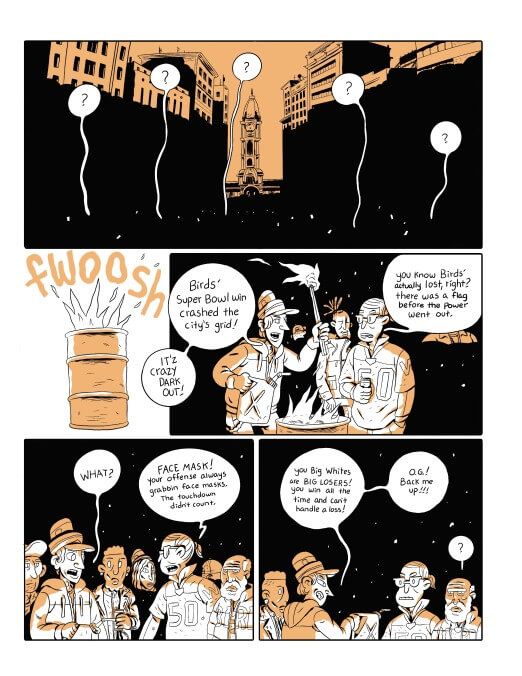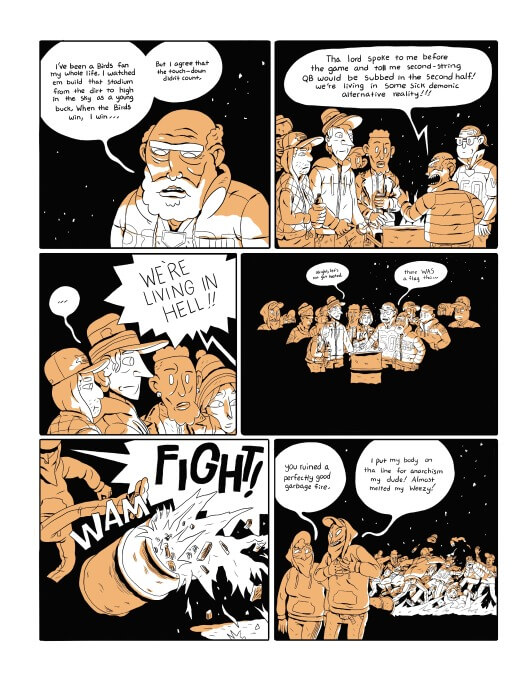Sports Is Hell is an incendiary takedown of toxic fan culture
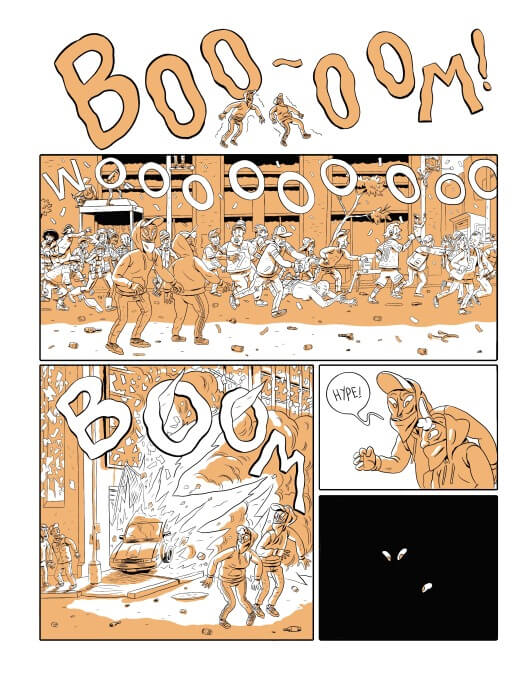
The world of sports will always be political. A team becomes a symbol for an entire community, whether it’s a town’s local organization or a country’s athletic representatives at the Olympics. The competition expands beyond the playing field, and building a pastime around conflict between divided factions creates a culture where people are encouraged to reject others outside of their own experience. This trend exists far beyond sports; the Marvel vs. DC rivalry compels people to exclude a publisher’s content and supporters, an ideology that can then be warped into excluding fellow Marvel/DC fans who don’t want the exact same things as you. Ben Passmore addresses this toxic fandom in his new Koyama Press graphic novel, Sports Is Hell, turning a post-Super Bowl riot into a racial warzone.
With books like Your Black Friend, exploring the microaggressions black people experience from tone-deaf white friends, and last year’s BTTM FDRS, a gentrification horror story about the corrupting influence of appropriation written by Ezra Claytan Daniels, Passmore has become a preeminent voice in comics on the subject of race and how it plays into social interactions and political/cultural institutions. With Sports Is Hell, he dives into the ongoing turmoil within the NFL, where predominantly white leadership continues to limit the freedom of speech of players who use their public-facing positions to engage in nonviolent protest. Marshall Quandary Collins is Passmore’s stand-in for Colin Kaepernick, facing nonstop criticism because he kneels during the national anthem. Collins isn’t a primary character in the narrative, but his deification and demonization from different sides of the political spectrum drives much of the action.
Passmore presents a variety of different perspectives on the NFL situation and the Black Lives Matter movement, attempting to uncover how to effectively protest within a system that’s trying to crush you. The privilege of white sports fans is never more evident than in the destructive celebrations that occur after major wins, which aren’t met with the same police force that hammers down on organized protests addressing long-standing issues plaguing communities of color. Sports Is Hell has two young black anarchists taking advantage of the post-Super Bowl chaos to incite some revolutionary action, which is met with severe opposition from increasingly militarized forces.
Passmore immediately establishes a surreal atmosphere by giving one of the book’s two sports/story commentators a sideways W for a head, which has been decorated to look like a shark’s open mouth. The book’s title appears in a panel showing the scope of this riot, drawn with a Where’s Waldo level of detail that emphasizes how packed the streets are and the fans’ shared belligerence. Passmore’s expressive lettering plays a major part in the visual design of each panel, with big blocky sound effects reinforcing an atmosphere of relentless aggression.
The book settles into the war genre as the stakes drastically increase, and—like in BTTM FDRS—the more cartoonish elements of Passmore’s artwork intensify the harrowing violence. There’s a lot of weird stuff happening around the characters as they enter new circles of this athletic hell, but don’t expect concrete answers. Passmore prefers the ambiguous, pushing plot specifics to the side in order to create a stronger feeling of terror within each moment. And in the end, people don’t have to subject themselves to this pain. Instead of choosing to fight for respect in a fandom that doesn’t recognize your humanity, you can step away and let the community tear itself apart while you invest your time and energy elsewhere.

